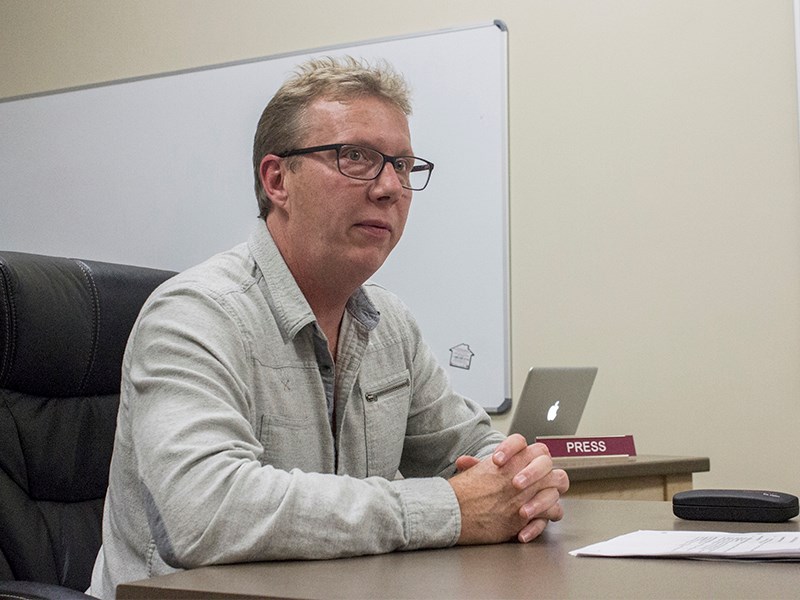A barge load of Lasqueti Island’s recycling ended up with Powell River garbage headed for landfill after being rejected on Vancouver Island, Powell River Regional District board directors heard at a meeting on October 26.
Regional district manager of asset management and strategic initiatives Mike Wall reported that the barge load of cardboard, paper and plastic arrived at Augusta Recyclers on October 21 after being rejected by several depots on Vancouver Island. Augusta also rejected the load as it included tree leaves, gravel and was soaked.
“Nobody is going to receive recycled goods that are contaminated,” said Wall. “This is a timely and excellent example for their solid-waste plan advisory committee. Hopefully now, they can recognize that this is the norm.”
The only choice was to landfill it, Wall told to board.
Electoral Area C director Colin Palmer told the board he found the developments on the island disappointing.
“The rest of the regional district is doing really good work producing uncontaminated recycling,” said Palmer. “We need to ask Lasqueti Island to get serious. They have to do better than this.”
For the past 43 years, the island has had its own waste system, independent of the regional district.
Wall said the reason the island’s recycling is contaminated is because Lasqueti does not have a proper facility to receive, process and store it for transport.
“It's as simple as that,” said Wall.
News about the island’s recycling woes comes at a time when the regional board is deciding whether to bring the island into the rest of the regional district’s solid-waste service and waiting for recommendations on the waste-management system island residents prefer.
Input from the island’s advisory committee was expected in July, but the committee has delayed making its preference known until the regional board decides if Lasqueti will join the rest of the regional district in a single, regional solid-waste service, said Electoral Area E director and advisory committee member Merrick Anderson.
"They don't know if they should go for the cheapest, because they are going to have to pay the whole shot, or go for the real thing, which is going to be more expensive," said Anderson.
According to the committee’s estimates, potential costs range from $200,000 up to $1.3 million.
Wall said the regional district will take the committee’s recommendations and present them with staff’s thoughts for the board to make a decision. Whether a single service is established or the status quo remains, the regional district is liable for how the island handles its waste, said Wall.
Board chair and Electoral Area A director Patrick Brabazon said the situation is bizarre.
“We appoint advisory committees to advise us,” said Brabazon. “This makes no sense to me whatsoever. There's a real disconnect there.”
Despite the cost implications being unknown, the board voted five to two, in a preliminary decision, in favour of converting the current two-service system into a single, regional solid-waste service. A final vote to adopt the bylaw is expected at the November board meeting.
Municipal directors Russell Brewer and CaroleAnn Leishman voted against the bylaw.
“I'm supportive of establishing regional services," said Brewer. "I want to assure director Anderson that this is not about whether it's done or not, it's about making a decision with everything in front of us."
Brewer said the recycling issue raises concerns and that he wants to find a way to fund the solution so it is equitable to all of the regional district’s taxpayers. He said he welcomed a future staff report outlining all the potential costs.
Anderson said he remains optimistic the regional service will be established.
"Hopefully the municipal directors can get enough information," said Anderson, “to satisfy themselves that this is the right thing to do.”



